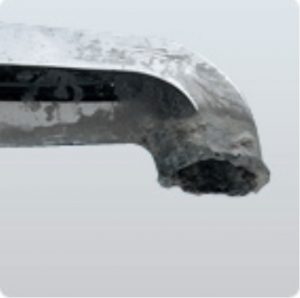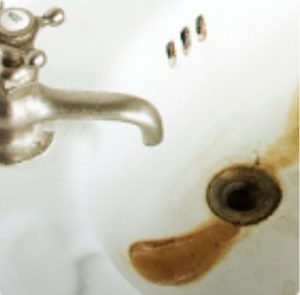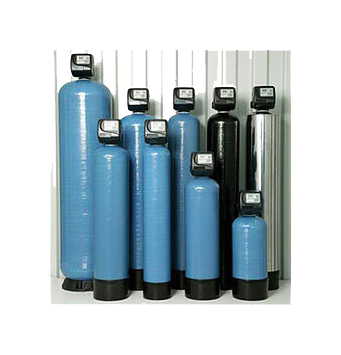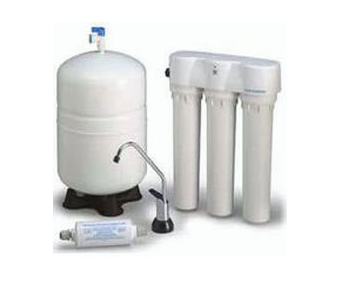Private Well Water Testing
Should you get your well water tested?
 At a minimum, check your well every spring to make sure there are no mechanical problems; test it once each year for total coliform bacteria, nitrates, total dissolved solids, and pH levels. If you suspect other contaminants, your should test for those as well. There are known problems with well water in your area.
At a minimum, check your well every spring to make sure there are no mechanical problems; test it once each year for total coliform bacteria, nitrates, total dissolved solids, and pH levels. If you suspect other contaminants, your should test for those as well. There are known problems with well water in your area.
HARD WATER

Hard Water
Hard water contains dissolved calcium, magnesium, and in many cases, iron. Most homes have hard water, whether it is supplied by a private well or a municipality. In many cases, homeowners don’t realize they have hard water or the constant and expensive harm it causes.
Dry skin and hair, bathtub ring, spots on glass, silverware and fixtures, dull, dingy clothing, disappointing performance, and a shortened life expectancy of water-using appliances are all problems frequently caused by hard water.
Iron and Magnesium Staining

Iron and Magnesium Staining
Water is a natural solvent and given the needed time and conditions, it will dissolve anything it comes in contact with. That’s why, depending on where you live, your water can contain iron or manganese which can cause rusty-orange or black staining. You’ll see the stains on clothes, fixtures, sinks, tubs, water-using appliances, and toilets.
Bacteria and Viruses

Bacteria and Viruses
According to the Centers for Disease Control and Prevention, there could be as many as 12 million cases of waterborne acute gastrointestinal illness annually in the United States alone. These Illnesses are frequently caused by bacteria, viruses, and protozoa that make their way into the water supply. Even well-operated, state-of-the-art treatment plants cannot ensure that drinking water is entirely free of microbial pathogens.
SERVING THE GREATER
NORTHERN, IL AREA
ON-SITE LABORATORY
TESTING FOR WATER
SAVING MONEY & TIME WITH A WATER SOFTENER

Water Softeners
REVERSE OSMOSIS GIVES YOU PURE WATER

Reverse Osmosis Drinking Water System
